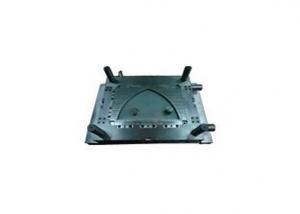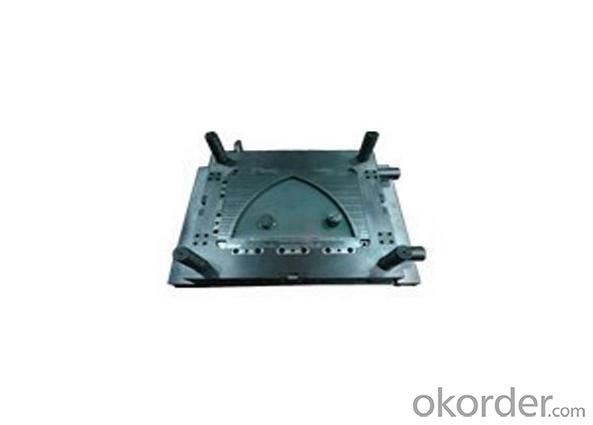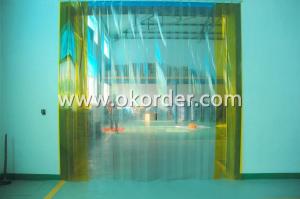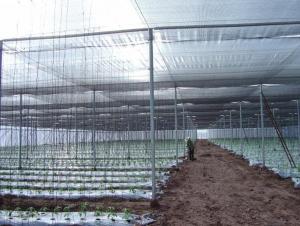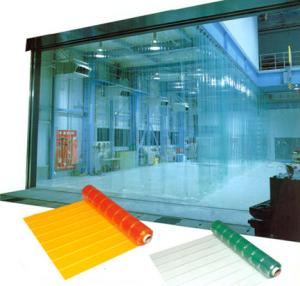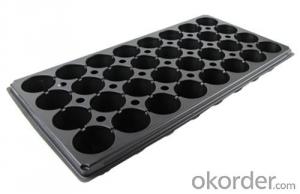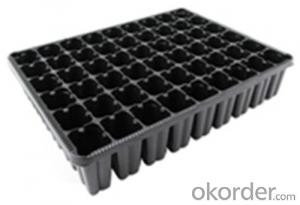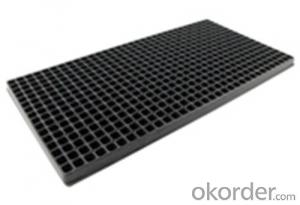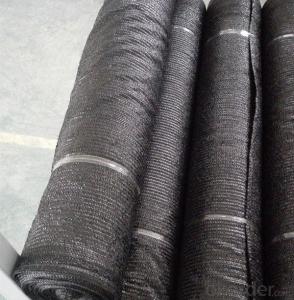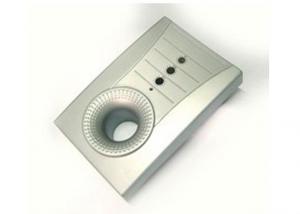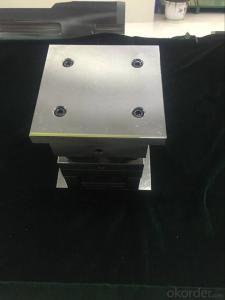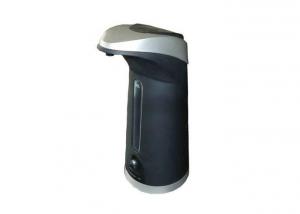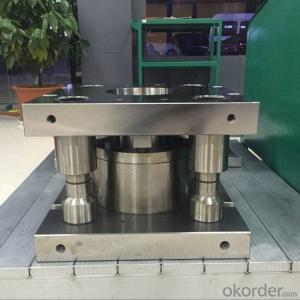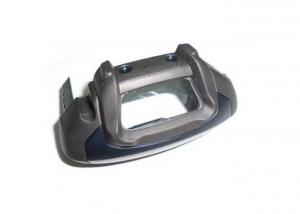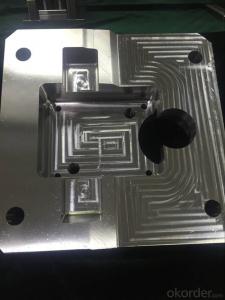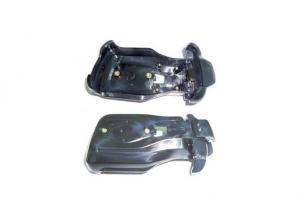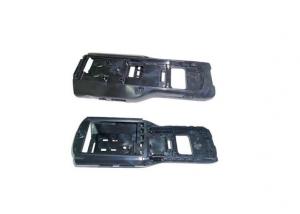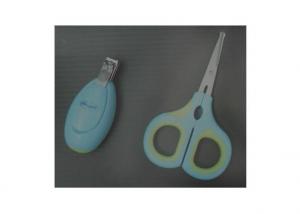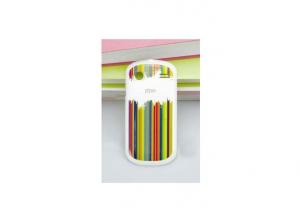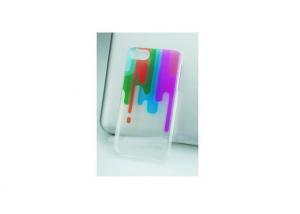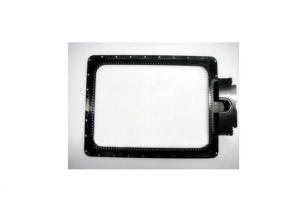Electronic Plastic Injection Mould for Plastic Lighting Parts
- Loading Port:
- China Main Port
- Payment Terms:
- TT or LC
- Min Order Qty:
- 1 Set set
- Supply Capability:
- 100 Sets per Month set/month
OKorder Service Pledge
OKorder Financial Service
You Might Also Like
Detailed Product Description
plastic injection mould
1.Standard HASCO
2.Finish: Polish
3.Material : ABS
4.Mould Life: 300,000 shots
Electronic plastic injection mould for plastic lighting parts
Certificate: ISO 9001:2008
20 years experience
Name |
Plastic injection Mould products |
Plastic material |
ABS,PC,ABS+PC,PA66,HIPS,PE,PP…etc |
Cavity & Core |
NAK80,S136 HRC48~52° |
Mould base |
LKM , HASCO |
Nos of Cavity |
As customer rquest |
Mould Standard |
DME, HASCO |
Mould Runner |
Hot Runner,Cold Runner … |
Surface finish |
Texture, High glossy ,Painting,Chrome Plating |
Delivery time |
20-35 Days |
Mould Packing |
Wooden Box or as your requirement |
Our Advantages:
-- Competitive price.
-- Professional, excellent, but simple design.
-- High quality, reliability and long mould life.
-- Professional customised R&D program.
-- Diverse and mature craft.
- Continuous service and supply.
-- Strict quality management.
-- High-quaity and integrated equipments:
-- High-speed processing center.
--Sodick wire cutting.
--Sodick cnc sinker EDM, EROWA Tooling System.
--40 sets plastic machinery with 80-1600MT.
--All our operations satify the standard of ISO9001:2008 certification.
--Exported products comply to requirements of Rohs certificate.
- Q: What are the main challenges in developing sustainable electronic plastic materials?
- The main challenges in developing sustainable electronic plastic materials include finding alternatives to petroleum-based plastics, ensuring recyclability and biodegradability, maintaining material performance and durability, reducing energy consumption in production processes, and addressing the complex supply chain and waste management issues associated with electronic waste. Additionally, balancing environmental concerns with cost-effectiveness and scalability poses a significant challenge in the development of sustainable electronic plastic materials.
- Q: How does electronic plastic contribute to reducing the assembly time of electronic devices?
- Electronic plastic, also known as thermoplastic, plays a crucial role in reducing the assembly time of electronic devices. Its malleability and ease of molding allow for the creation of intricate designs, such as custom enclosures and connectors, that perfectly fit the components. This eliminates the need for additional adjustments or modifications during assembly, resulting in a faster and more efficient production process. Additionally, electronic plastic's lightweight nature reduces the overall weight of the device, making it easier and quicker to handle during assembly. Overall, the use of electronic plastic significantly contributes to streamlining the assembly process by providing accurate and ready-to-use components, ultimately saving time and increasing productivity.
- Q: What are the dielectric properties of electronic plastic?
- The dielectric properties of electronic plastic refer to its ability to store and transmit electrical energy. These properties include high dielectric strength, low dielectric loss, and good insulation properties. Electronic plastics are commonly used in the production of electrical components and devices due to their excellent dielectric properties.
- Q: What are the specific requirements for electronic plastic in consumer electronics?
- The specific requirements for electronic plastic in consumer electronics include properties such as high heat resistance, excellent electrical insulation, good dimensional stability, and compatibility with various manufacturing processes like injection molding. Additionally, the plastic material must meet safety standards, be lightweight, and have good mechanical strength to withstand the rigors of everyday use in electronic devices.
- Q: What are the challenges in recycling electronic plastic?
- One of the challenges in recycling electronic plastic is the complexity of the materials used in electronic devices. Electronic plastic often contains various types of plastics, metals, and other components that need to be separated and processed individually, which can be time-consuming and costly. Additionally, electronic plastic may contain hazardous substances, such as flame retardants or heavy metals, which require special handling and disposal methods to ensure environmental safety. Furthermore, the lack of standardized recycling processes and limited infrastructure for electronic plastic recycling pose additional challenges in efficiently and effectively recycling these materials.
- Q: How does electronic plastic impact the overall reliability of electronic devices?
- Electronic plastic can have both positive and negative impacts on the overall reliability of electronic devices. On the positive side, electronic plastic is lightweight, flexible, and resistant to corrosion, which can enhance the durability and portability of electronic devices. Additionally, it allows for the miniaturization of components, leading to smaller and more compact devices. However, electronic plastic is also prone to wear and tear, leading to potential structural issues, decreased signal integrity, and thermal management challenges. Therefore, its impact on reliability depends on the specific application and the quality of the plastic used in the electronic device.
- Q: How does electronic plastic contribute to the reduction of power consumption in electronic devices?
- Electronic plastic, also known as conductive polymer, plays a crucial role in reducing power consumption in electronic devices. This material possesses unique properties that allow for efficient energy management. By utilizing electronic plastic, manufacturers can create more energy-efficient components, such as flexible and stretchable circuits and low-power organic light-emitting diodes (OLEDs). These advancements enable the production of lightweight and portable devices with lower power requirements, leading to reduced energy consumption and longer battery life. Overall, electronic plastic facilitates the development of energy-efficient electronics, thereby contributing to the reduction of power consumption in electronic devices.
- Q: Does electronic plastic have any magnetic properties?
- No, electronic plastic does not have any magnetic properties.
- Q: How does electronic plastic affect the cost of electronic devices?
- Electronic plastic can affect the cost of electronic devices in a few ways. Firstly, the cost of producing electronic plastic components, such as casings or connectors, adds to the overall manufacturing expenses. The quality and durability of the plastic used can also impact costs, as higher-quality materials often come at a higher price. Additionally, the availability and sourcing of electronic plastic can influence costs, particularly if there are supply chain disruptions or fluctuations in raw material prices. Ultimately, these factors contribute to the final price of electronic devices, potentially impacting consumer prices.
- Q: How does electronic plastic affect the overall user learning experience of electronic devices?
- Electronic plastic can have a significant impact on the overall user learning experience of electronic devices. The use of high-quality electronic plastic materials can enhance the durability, aesthetic appeal, and ergonomics of devices, making them more comfortable and visually appealing for users. Additionally, electronic plastic can play a crucial role in ensuring the safety and reliability of devices, protecting internal components from external factors such as moisture or impact. By providing a seamless and reliable user experience, electronic plastic contributes to a positive learning environment by minimizing distractions, increasing the longevity of devices, and promoting user engagement and satisfaction.
1. Manufacturer Overview
| Location | Guangdong, China (Mainland) |
| Year Established | 2010 |
| Annual Output Value | |
| Main Markets | North America South America Eastern Europe Southeast Asia Africa Eastern Asia Western Europe Central America Northern Europe Southern Europe South Asia |
| Company Certifications |
2. Manufacturer Certificates
| a) Certification Name | |
| Range | |
| Reference | |
| Validity Period |
3. Manufacturer Capability
| a) Trade Capacity | |
| Nearest Port | Osaka Japan,Ravenna Italy,Montreal American |
| Export Percentage | 61% - 70% |
| No.of Employees in Trade Department | 6-10 People |
| Language Spoken: | English, Chinese |
| b) Factory Information | |
| Factory Size: | 5,000-10,000 square meters |
| No. of Production Lines | Above 10 |
| Contract Manufacturing | OEM Service Offered |
| Product Price Range | |
Send your message to us
Electronic Plastic Injection Mould for Plastic Lighting Parts
- Loading Port:
- China Main Port
- Payment Terms:
- TT or LC
- Min Order Qty:
- 1 Set set
- Supply Capability:
- 100 Sets per Month set/month
OKorder Service Pledge
OKorder Financial Service
Similar products
Hot products
Hot Searches
Related keywords
